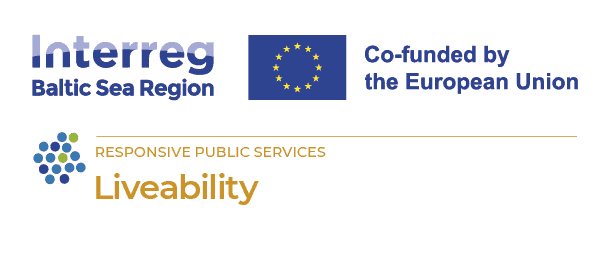
Liveability at UBC Seminar and DIGI-INCLUSION URBACT Network Meeting
26 September 2024
On 9-12 September the seminar “Sustainable transformation for resilient coastal city” was jointy organised by the UBC Sustainable Cities and Planning Cities Commissions in Gdańsk, Poland.
The main goal of the seminar was to present and discuss the implementation of the concept of a compact city and opportunities to fill in urban structures as close as possible to their centres. Gdańsk seeks new solutions and implementing adaptive measures to make public spaces more green, inclusive and accessible. At the seminar, participants looked for opportunities to revitalize the urban structure by finding the best ideas for a sustainable and smart transformation of port and industrial areas.
The presentation “Liveability – shaping solutions for building resilient cities in the Baltic Sea region” given by Dorota Kamrowska-Załuska was introducing project and the Liveability Design Approach (Capacity Building Programme).
Read more here about the event: https://www.ubc-sustainable.net/news/sustainable-transformation-gdansk-districts
Additionally, on 13 September, representatives of the Gdańsk University of Technology partner of Liveability project – Dorota Kamrowska-Załuska and Jacek Józekowski were invited to present online application to DIGI-INCLUSION URBACT Network meeting. The application is an web based tool to assess the Public Interest Design (PID) ecosystem, document and self-evaluate the process of piloting the Charter for Designing Liveable Cities. It allows to evaluate the PID ecosystem by identifying stakeholders relevant to strengthening PID in the organisation and analysing relations between those stakeholders. Further, it allows to assess the organisation’s ability to innovate using the OECD OPSI tool and critically review fundamental principles of PID and steps to anchor them in the city administration, followed by assessments of PID charter implementation, including its relation to city strategic development and its impact on liveability. Project and application was presented by
Learn more about the DIGI-INCLUSION network: https://urbact.eu/networks/digi-inclusion





